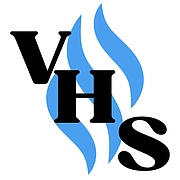Linux Solutions
Linux Solutions
Linux, as a versatile and open-source operating system, provides a wide array of solutions that cater to diverse needs across various domains. From server management and system administration to development and multimedia creation, Linux offers robust tools and applications. Here are some notable Linux solutions:
1. Server Management:
Solution: OpenStack
Description: OpenStack is an open-source cloud computing platform that facilitates the management of large pools of compute, storage, and networking resources. It is widely used for building private and public clouds.
2. System Administration:
Solution: Webmin
Description: Webmin is a web-based system administration tool for Unix-like systems, including Linux. It provides a graphical interface for tasks such as user account management, package installation, and configuration of system settings.
3. Desktop Environment:
Solution: GNOME
Description: GNOME is a popular desktop environment for Linux. It offers an intuitive and user-friendly interface, along with a set of applications and tools designed for seamless desktop computing.
4. Multimedia Creation:
Solution: Ardour
Description: Ardour is a professional-grade digital audio workstation (DAW) for Linux. It is used for recording, editing, and mixing audio and is suitable for musicians, sound engineers, and content creators.
5. Web Development:
Solution: LAMP Stack (Linux, Apache, MySQL, PHP/Python/Perl)
Description: The LAMP stack is a popular solution for web development on Linux. It includes the Linux operating system, Apache web server, MySQL (or MariaDB) database, and a choice of scripting languages like PHP, Python, or Perl.
6. Container Orchestration:
Solution: Kubernetes
Description: Kubernetes is an open-source container orchestration platform for automating the deployment, scaling, and management of containerized applications. It is widely used for container orchestration and microservices architectures.
7. Security:
Solution: SELinux (Security-Enhanced Linux)**
Description: SELinux is a set of kernel modifications and user-space tools that enforce mandatory access control policies. It enhances the security of Linux systems by defining and enforcing access policies.
8. Package Management:
Solution: Advanced Package Tool (APT)
Description: APT is a package management system used by Debian-based Linux distributions, including Ubuntu. It simplifies the process of installing, updating, and removing software packages on a Linux system.
9. Database Management:
Solution: MySQL/MariaDB
Description: MySQL and MariaDB are popular open-source relational database management systems. They are used for storing and retrieving data, making them essential for web applications and server-side development.
10. Version Control:
Solution: Git
Description: Git is a distributed version control system widely used for tracking changes in source code during software development. It enables collaboration among developers and is the foundation for platforms like GitHub and GitLab.
11. Text Editing:
Solution: Vim and Emacs
Description: Vim and Emacs are powerful and highly customizable text editors used by developers and system administrators. They provide advanced features for efficient text editing and programming.
12. Networking:
Solution: Wireshark
Description: Wireshark is a network protocol analyzer that captures and inspects data on a network in real-time. It is valuable for troubleshooting, network analysis, and security monitoring.
These Linux solutions represent a fraction of the diverse ecosystem of tools and applications available. Linux’s flexibility and open-source nature make it a preferred choice for a wide range of computing needs, from individual users to enterprise-level deployments.




Leave a Reply
Want to join the discussion?Feel free to contribute!